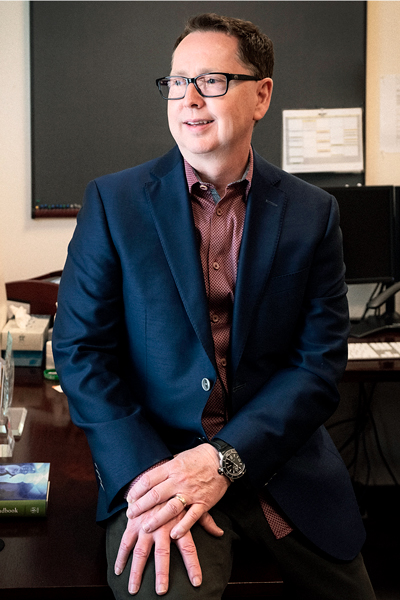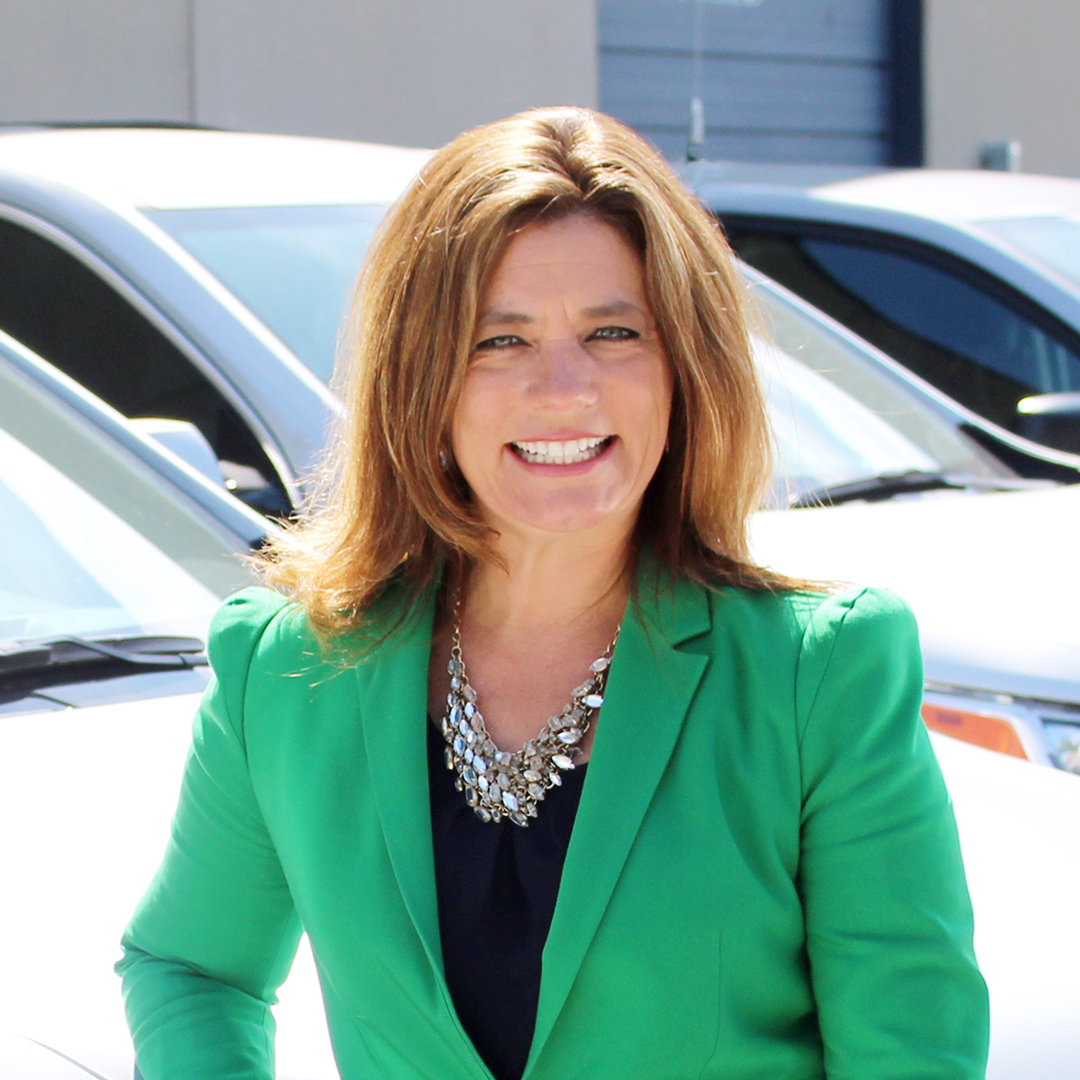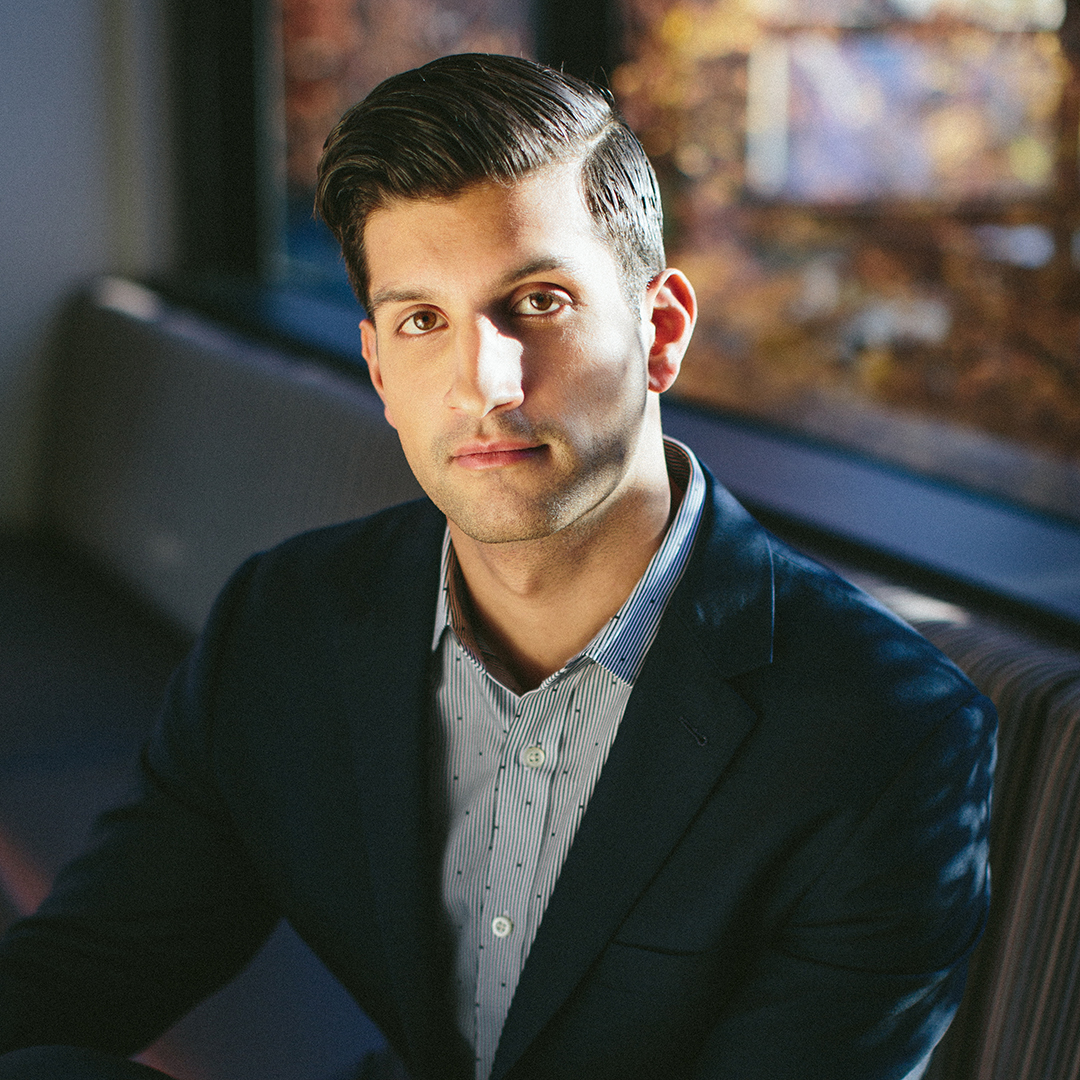Keith Causey is on the floor of the Kmart in Modesto, California, stocking an endcap display with cans of paint. One by one, he pulls each gallon off the cart, the wire handles digging into his palms as he walks each can over to the shelf and places it in its temporary new home. As he repeats the action, back and forth, an older gentleman looks on, then offers this advice: “You know, if you move the cart closer to the endcap, your job will be easier.”

This took place decades ago, when Causey was a kid. He went on to hold accounting roles at KPMG, Beckman Coulter, DirecTV, and General Motors, where he was tapped to lead the accounting for the company’s 2009 bankruptcy filing. Today, he’s senior vice president, chief accounting officer, and controller at Caesars Entertainment Corporation, the $8.6 billion owner and operator of casinos, hotels, and golf courses. But in fundamental ways, his job is the same as it was that day in Kmart. “That’s what I’m always trying to do,” he says. “How can I get the cart closer to the endcap so it’s not hard and cut out all of the waste in between?”
In all of his roles, Causey has found ways to use accounting as a platform for leading organizational transformation. He did that for other clients as a consultant, especially dot-coms experiencing rapid growth but not thinking about how to scale their processes. He got to put a lot of that experience to use at DirecTV, where he helped the company through various acquisitions and divestments, introducing efficiencies and better technology along the way. GM then hired Causey to lead transformation as part of his role—the bankruptcy was a surprise assignment—replacing its legacy consolidations and reporting system, remediating material weaknesses, and turning its shared services into the General Motors Global Business Service Center.
When Causey arrived at Caesars, he was yet again facing material weakness: late SEC filings, low morale, high attrition, and a 1980s general ledger system that sorely needed updating. To him, it was an attractive challenge—another opportunity to get the cart closer to the endcap. “I like issues and problems and complexity,” Causey says. “I like to make them less complex.”
Causey immediately started rallying his team. “I promised them, we’re going to get down to five-day closes, we’re going to file on time, and by the way, we’re going to cut the overtime.” The team was skeptical, but they worked with Causey to identify the root causes of their issues and address them with new tools and training. “Within six months, we wiped out our material weakness,” he says. “I think that was quite good, and it gave our people the confidence to be able to do more.”
That same year, Causey also started the process to replace the general ledger with a cloud-based system, ultimately going with Oracle’s cloud finance applications and selecting Grant Thornton to serve as its systems integrator. “An efficient and successful delivery requires a strong relationship and collaboration between the business lead and the consulting team,” says Shawn Stewart, Grant Thornton’s strategic relationship partner for Caesars. “Our team was impressed from day one with Keith’s ability to comfortably interact in even the most technical aspects of the work, with one of my team members observing that Keith was actually a CIO disguised in the body of a chief accounting officer.”
“That’s the ultimate compliment an IT professional can pay to an accountant or business leader,” Stewart continues. “It speaks volumes to the extent of Keith’s preparation to be able to operate in all aspects of a transformation.”
Caesars prepared for implementation by process mapping and training staff on end-to-end processes. “During that time, we were able to streamline our processes and introduce automation quite heavily,” Causey says. With Oracle, Caesars has automated allocations, journal entries, and revenue postings and put in more exception-based handling processes, which have reduced manual intervention.
Currently, they are in the process of implementing advanced data strategies to achieve greater automation, and in the future, they’re looking to introduce machine learning and artificial intelligence in an effort to achieve “low-touch processes,” where most of the effort will be spent on staging data to achieve the highest level of automation.
Even with Causey’s proven track record, he feels his early wins at Caesars were necessary to pave the way for bigger transformations, like the move to Oracle and another project to modernize and outsource payroll. “It doesn’t matter what you did before; everybody thinks they’re different,” he says. “You have to prove that what you do will work in that particular situation and get buy-in—and the more buy-in you get, the more you can do.”
For outsourcing payroll, Causey turned to ADP. “ADP is proud to partner with Keith Causey and Caesars Entertainment as they continue their payroll and HCM optimization journey,” says Debbie Dyson, president of national accounts at ADP.
“You have to prove that what you do will work in that particular situation and get buy-in—and the more buy-in you get, the more you can do.”
Causey calls his approach to transformation “People, Process, Technology.” “If you don’t train your people, if you don’t bring them the right tools in the way of technology, and you don’t help them with thinking through their process better, you’re not going to achieve maximum results,” he says. “People aren’t just going to adapt. You have to show them the way.”
A mistake Causey sees a lot of companies make when adopting new technology is trying to adapt it to their current processes, rather than what he calls a “move-in mind-set”—updating their requirements and processes to the technology. “The software developers have basically written in the process,” he says. “Just move in. Move your process into the tool and take advantage of the capabilities that they have.”
To continue driving innovation, Caesars is taking part in the University of Nevada, Las Vegas’s effort to build a hospitality lab called Black Fire Innovation, where students, faculty, and industry partners can explore problems and opportunities that affect the future of casinos. Causey is specifically partnering with UNLV’s Lee Business School to create a back-office lab environment, and he hopes to help define the financial curriculum of the future.
“You need to understand accounting, high finance, analytics, advanced data strategies, and have a solution-oriented mindset; it’s going to be done very differently in the future,” he says. “How does technology affect all of those different things, and how do students come out of school knowing how to be more relevant right out of the gate?”
Causey views teaching as an essential part of transformation and an integral part of turning Caesars’s accounting department into one of the best places to work on the Las Vegas strip, with attrition down from 40 percent to 15 percent. “The people that come here, they’re going to learn something, and I think that’s why we have a very loyal workforce,” he says. “When you can get through to people and teach them and see them continue to progress—and then they turn into leaders—for me, that’s most fulfilling.”

